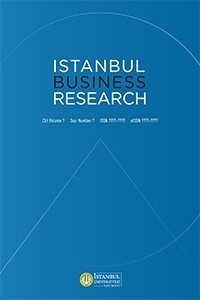
Istanbul Business Research
Yazarlar: ["Esme IŞIK", "Ayfer ÖZYILMAZ", "Metin TOPRAK", "Yüksel BAYRAKTAR", "Figen BÜYÜKAKIN", "Mehmet Fırat OLGUN"]
Konular:-
DOI:10.26650/ibr.2022.52.895431
Anahtar Kelimeler:COVID-19,Pandemic,Income inequality,Gini,Artificial neural networks,Linear regression
Özet: The effects of economic contractions experienced during pandemic periods on different income sectors and country groups in terms of income inequality are not homogeneous. Due to the fact that COVID-19 has deeply affected the lives of the poor, immigrants, refugees, the homeless, seasonal workers and people with no health insurance, the relationship between the pandemic and income inequality is of great significance . This study aims to find an answer to the question of whether the recent pandemic increased or decreased income inequality. In the study, the effect of COVID-19 on income inequality in 38 countries with different income levels is analyzed with the Artificial Neural Networks (ANN) and Linear Regression (LR) method. In this context, Gini index values for 2020 were estimated using unemployment, inflation and growth data, which are determinants of income distribution, for the periods 2000-2019. According to the analysis findings, while COVID-19 reduces income inequality in some countries, it increases it in others. However, in general, the results of our study show that the overall effect of COVID-19 on income levels in both developed and developing countries has been to increase income inequality.